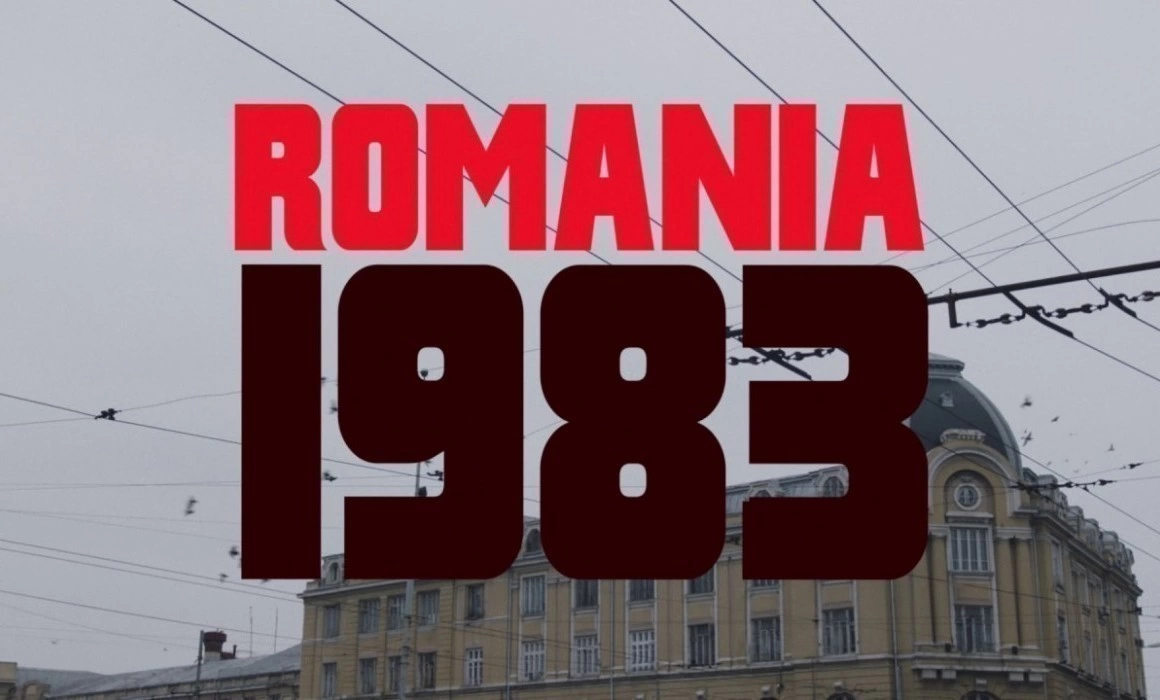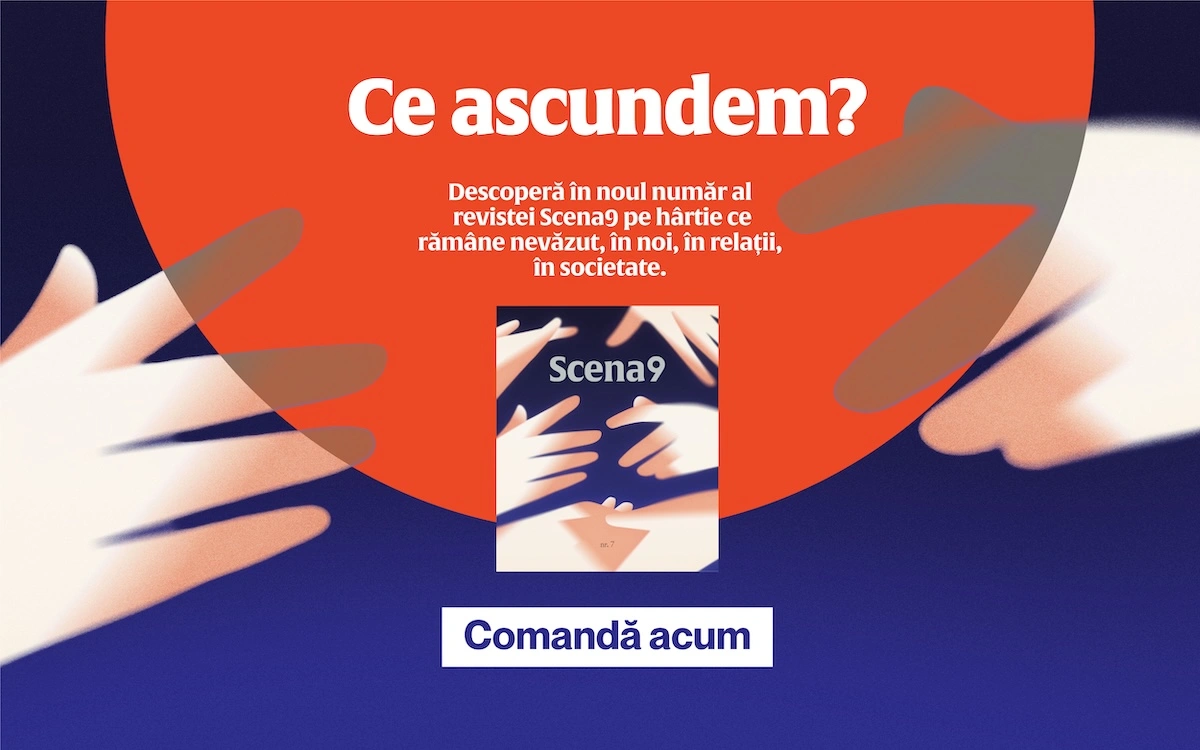The Cold War is trendy. This has been the case ever since Wolfgang Becker's 2003 film Good Bye Lenin! validated consumerist nostalgia for Communist material culture - the ‘80s became cool and endearing, even for those Romanians who felt embarrassed by the “unmentionable era” in their history. But the revival of Cold War rhetoric in this post-truth and Trump-Putin era begs a new style of irony. After the success of shows such as The Americans, Tovarăşul miliţian/Comrade Detective rides the same wave, with a type of metadiscourse that appears to be saying just the right things.
As an Eastern European, Channing Tatum and Jon Ronson’s introduction to the show will make your chest swell with pride. You're told that Romania’s National Film Archive, in collaboration with no less than five international governments, is giving you back a lost gem of 1980’s Romanian cinematography. And that you should prepare for a game of media archeology. You’re already smirking and mumbling to yourself, thinking 'of course, the West had to come and uncover our national values.' But you are also bracing yourself for a dose of mediated nostalgia - pure, unadulterated, and dubbed by Americans. The opening credits, however, will spoil your appetite for authenticity quite quickly. Instead of Mărgelatu' Sr., aka Florin Piersic the father, you see his son, Piersic Jr. doing a Billy Elliot-style pirouette. Once the names on the faux credits start rolling out, you realize that the Americans have lost you in translation (or, in this case, in the dubbing). The names include Ana Maimuţă (Romanian for 'monkey'), Lup Mirosi (Romanian for 'Wolf Smelled'), and Bebelus Pisicuță (Romanian for 'Baby Kitten'). The plot unfolds rapidly, in the manner of an 80’s American cop movie. Depending on your age, it's a movie you may have seen dubbed by Irina Margareta Nistor, in a friend’s living room. The pace is quick enough to produce an irritating defamiliarization that begs the question: “Who do they take me for?” And this is the wager Tovarăşul miliţian / Comrade Detective makes. It's a wager taken out both against genre conventions, as well as against the series' approach of you, the Romanian viewer. One the one hand, you're basically trapped in a game of permanent exchange between an ideological farce and a bad cop movie. And, on the other, you find yourself caught between the questions: “What do Americans make of this?” and “What should I make of this?”. This exchange back and forth appears to be the series’ forte.
As a Romanian, you watch the Romanian actors, but you can’t hear their voices. And you understand, if you still hadn't, how marginality and exoticizaton work. But because they appear to be intentional and part of the game, you allow them to seduce you. What’s also seductive is the idea that the production team wanted to satirize Communist propaganda, as a means to draw attention to current US political affairs. This way, the idiosyncrasies of Romanian Communism end up being politically relevant in contemporary discourse. Last, but not least, the 80’s aesthetics and the exploitation of the consumerist logic in Communist Romania give us one of the best scenes in the series. The bootlegged Jordache jeans, for instance, create an opportunity for the show to discuss English phonetics, display a police chase shootout, and delve into the local high-class underground black market. The jeans become the emblematical fetish object for the religiousness of consumerism. The scene that stands to please critical theory enthusiasts the most is the one where we learn what turned Gregor Anghel (Florin Piersic Jr., dubbed by Channing Tatum) into a fervent Communist and a snitch, who turned in his own parents. The trauma of catching his parents having intercourse, after being aroused by the luxury of a fur coat – a trademark of Western lavishness, which they had access to as cultural attachés for the Socialist Republic of Romania – hints both at Freudian castration anxieties, as well as at fetishim theory, via Marx and Freud.

But who cares about such subtext, when in fact, Channing Tatum has attributed the idea behind the show to a pure and banal fascination with the figure of the Eastern European antagonist and a desire to play with Romanian 80’s fashion? Director Rhys Thomas insists that, during filming, the general attitude was not that of Westerners ridiculing Communism, but that it was rather an attempt to think like the “directors of the time”. This can only point to the fact that the presumption of auto-reflexivity has its limits. When you take a step back, the Tovarăşul miliţian/Comrade Detective mockudrama becomes a cute experiment based on the West’s nostalgia for its very own Cold War capitalism. This nostalgia targets a kind of propaganda, which, in hindsight, seems softer and thus easier to ridicule, as well as the West's own role as a Big Other for the eternally exotic world behind the Iron Curtain. The show’s merit is that it actually does what it purports to do: perform the idea that it is pure fiction to study the propaganda of 'the other' in hopes of finding historical truth. Historical truth itself is fiction, and you need to look at Cold War propaganda with the knowledge that capitalism and communism are reciprocally generated at discourse level.
But what has this experiment given the Romanian consumer? Certainly, a good dose of humor, a haunting soundtrack, a possible appetite for rewatching the popular comedic series of feature films BD in Acțiune (BD in Action) (or, for a spectacular dose of Cold War rhetoric, the delightful Ninotchka), and the typical dose of self-deprecation. On a more serious note, the lack of access to Romania's National Film Archives remains a topic worth discussing. It doesn’t necessarily mean that an actual Romanian Communist show with a voice over would have been preferable to a production that feigns authenticity. (I, for one, would rather deal with such professed inauthenticity in appropriating the cultural memory of a foreign space.) But the issue of access is one that should interest us all. Similarly, an assessment of cultural products imbued with Romanian propagandistic discourse, under various time frames and political regimes, warrants more interest, in its transnational aspects.
P.S.: For a much more intense camp experience, I recommend the works of Yevgeniy Fiks, one that is more anchored in the game of Cold War ideological mirroring. One that treats the role of the discourse on the time’s homosexuality much more than en passant (Tovarăşul miliţian/Comrade Detective makes one or two subtle jokes on the subject).
Translated from the Romanian by Cristina Costea
Cover image via YouTube
For more fresh English-language cultural journalism, brought to you by the new voices of Romania, look here.




